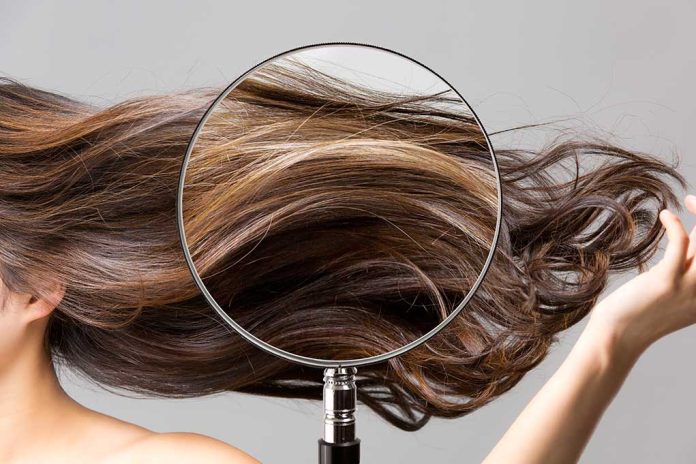
(HealthyResearch.com) – A full head of thick, shiny hair often creates an image of youthfulness and vitality, so changes in quality can be a real cause for concern. Not all changes are signs of health problems, but it’s important to identify possible issues when they do arise.
Hair loss, changes in hair texture and loss of hair color can be the result of the natural aging process, but they can also indicate some serious health issues. Here’s what hair quality can also say about a person’s health.
Hair Loss
Hair loss is a lot more common than we might realize, with pattern baldness affecting up to 50% of all people, male and female, by the age of 50. It can also be a sign of numerous nutritional deficiencies, so we shouldn’t ignore thinning hair if it becomes a sudden problem regardless of family history.
Iron is the most common nutritional deficiency, especially in vegetarians and vegans, who can’t depend on meat sources for the vital mineral. Low protein, another problem that can come with going meatless, can also cause hair loss. Other deficiencies that can make a person lose their hair include low levels of omega-3 and omega-6 fatty acids, folic acid, biotin and vitamins A, E and D.
Some conditions, such as Cushing’s syndrome, systemic lupus erythematosus and even viral infections, can also cause hair loss, so if it’s unexpected and new, a trip to the doctor to rule out these and other health conditions might not be a bad idea.
Brittle Hair
Hair that breaks easily can also be a sign of illness. Hypothyroidism can cause this problem, and it may also result in hair loss. Doctors have also observed brittle hair in anemia and chronic liver disease. Zinc deficiency is sometimes a culprit.
Not all brittle hair is a reflection of poor health, however. Curling/straightening irons, dryers and other hair products can also lead to weak, damaged hair. Weigh all possible factors when looking for a cause.
Graying Hair
Most of us have discovered at least one gray hair in our adult lives — and it’s actually only considered premature when it starts before 20 years old in Caucasians, 25 years old in Asians or 30 years old in Africans. Exposure to pollution, cigarette smoke, UV radiation and poor diet can speed up the process, although our genes also play a role.
Graying hair can also indicate a handful of health issues, including hypothyroidism and osteopenia, the stage of bone weakening that comes before osteoporosis. Some vitamin deficiencies, including vitamin B12, biotin and folic acid, may also cause premature graying.
Our hair can say a lot about our health, but changes can also be broad to interpret. Consider any other health issues that could be related and see a doctor for help pinpointing the cause. Changes in hair quality aren’t usually red flags for anything serious, but why take any unnecessary risks?
~Here’s to Your Health & Safety!
Copyright 2021, HealthyResearch.com
















